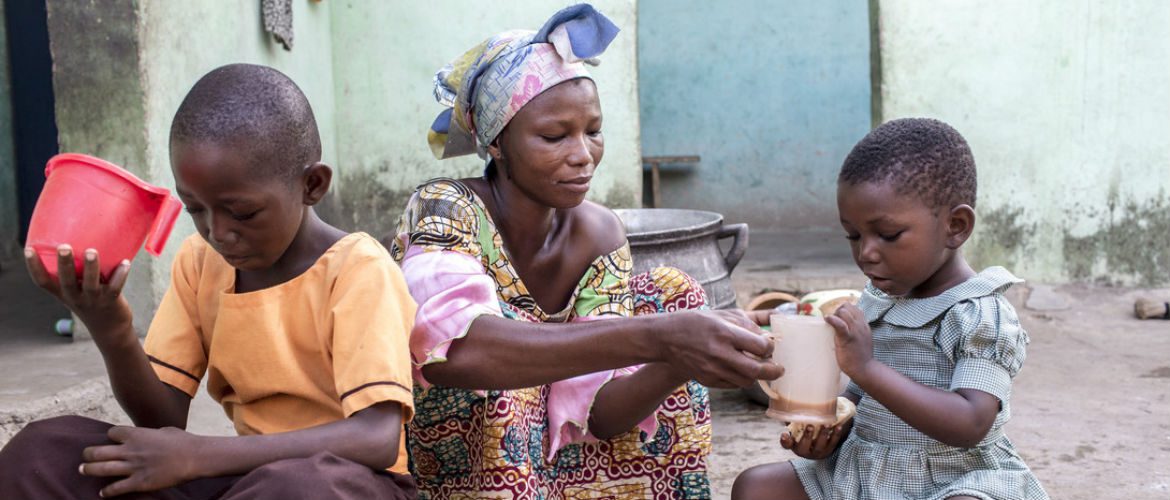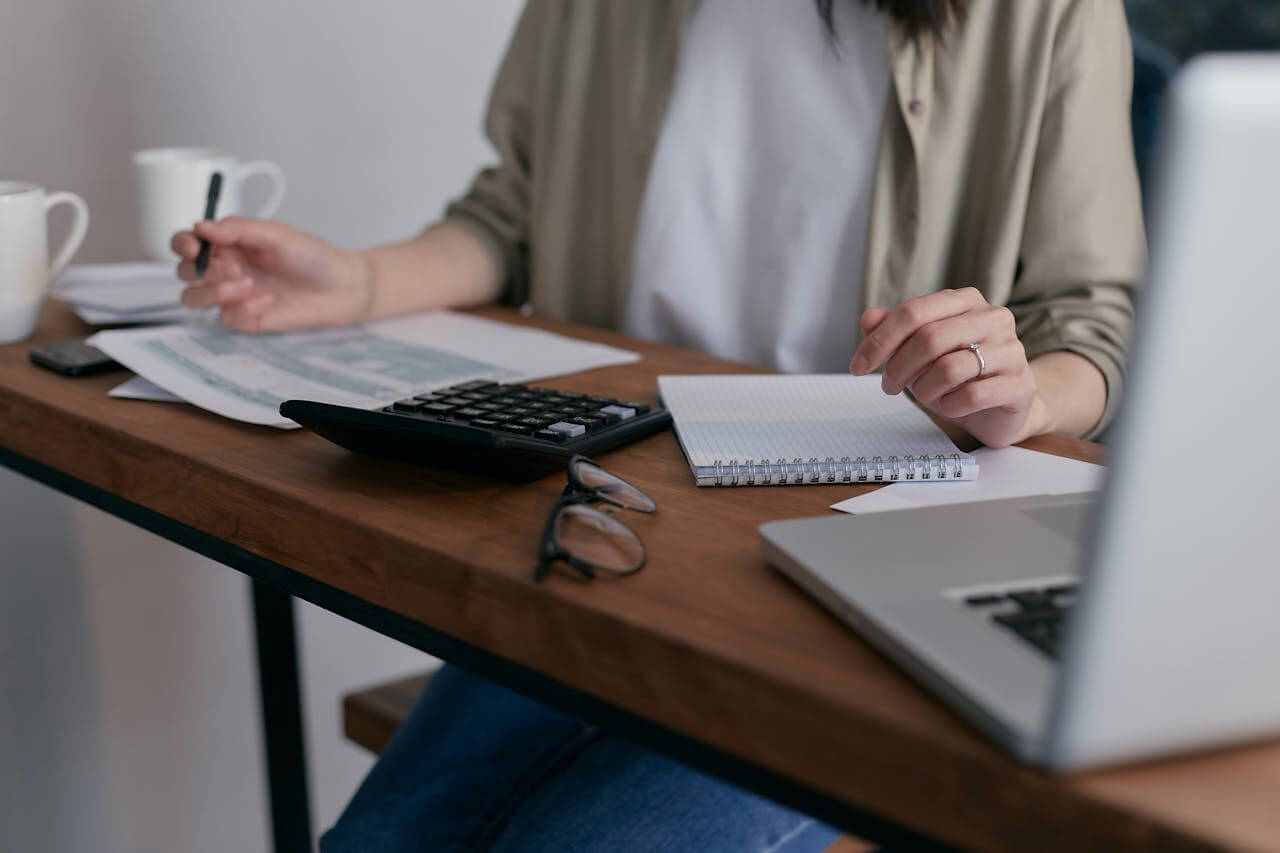Before she joined the beekeeping program, Augustina’s life was soured by hunger and uncertainty.
“I used to feel sick and unhappy,” she recalls. “It was a sad situation.”
With three young daughters to feed, and no work opportunity in sight, Augustina struggled.
“I couldn’t get enough food to feed my children, which made me feel sad as a mother,” she says.
Between June and August, three in four families in rural Ghana grapple with food shortages. The Hungry Season is especially hard for women because they don’t have equal access to farming land and resources — and so their children go hungry.
“You could see the children were unhappy and they looked sick,” Augustina says. “You could tell they were underfed.”
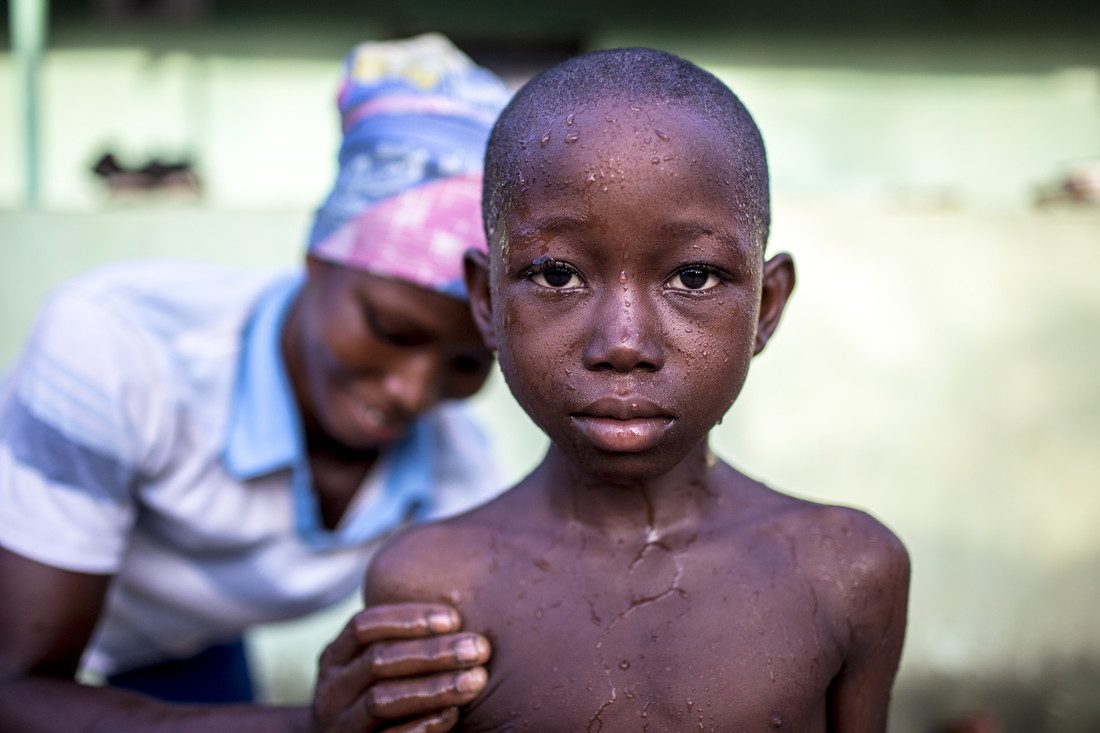
In rural Ghana, incomes depend on farming. But women are typically excluded from the most profitable farming activities, such as raising livestock and growing staple crops.
“Land is strictly owned by men,” Augustina explains.
When Oxfam came to Augustina’s community to teach women beekeeping and farming techniques, she leapt at the chance.
“I had never kept bees before,” she says. “The only beekeeper I knew was a man who harvested wild honey.”
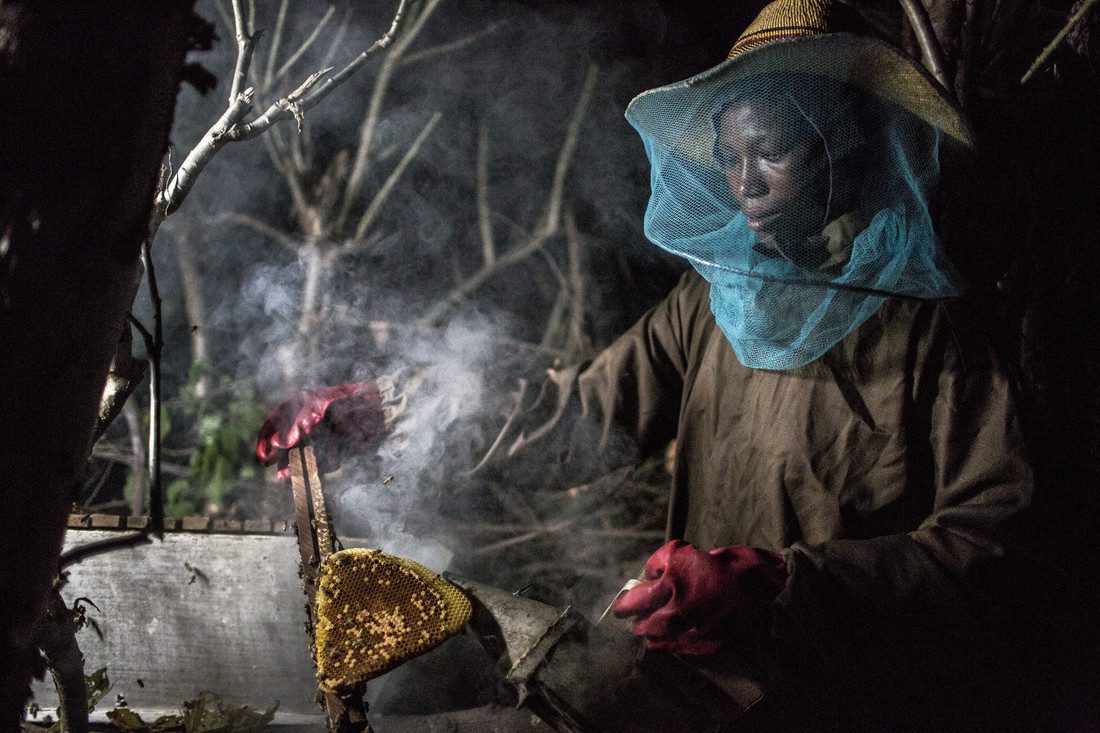
Augustina joined the training group and learnt beekeeping skills from her friend.
“Vivianne trained me on how to wear the protective clothes,” Augustina recalls, “[and] how to safely set fire to the sawdust for harvesting the honey.”
At first, she was wary of bee stings. But when Augustina stepped into the protective clothing supplied by Oxfam, she found her confidence.
“I learnt how to observe the hives to see when they were fully matured and ready for harvest and how to gently remove the beeswax to bring it home for processing.”
Beekeeping has given Augustina and Vivianne a welcome glimpse of independence.
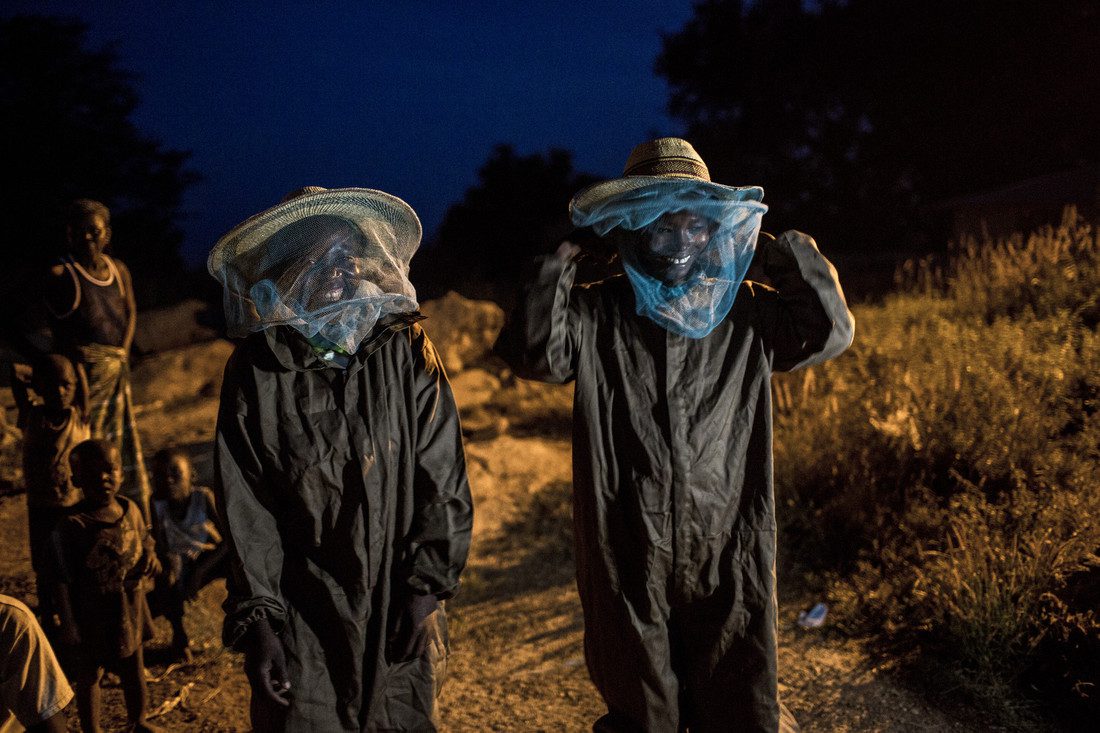
“Previously, we thought it was only for men,” Vivianne says. “Now, we are in charge and we can do it.”
Life is much sweeter now for Augustina and her daughters. “We now know we can sell honey and improve our living standards,” she says.
With her newfound beekeeping skills, Augustina has the power to lift her family out of poverty.
“Now I can sell honey, which means I can buy food, schoolbooks, pencils and clothes.”
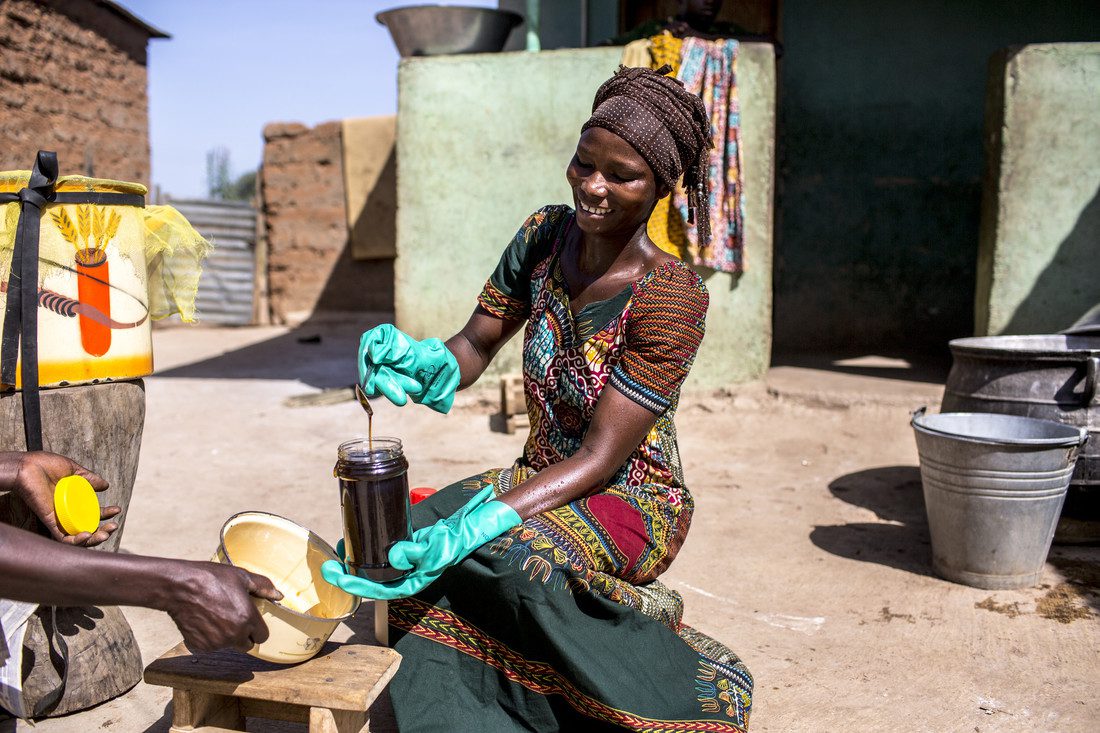
“There is a great difference now in my life,” Augustina says.
“We also eat the honey and, when my children suffer from coughs, I can mix it with a little palm oil to make a medicine.”
The girls aren’t the only ones tasting the benefits of Augustina’s honey business. Smiling, she says, “My husband appreciates the fact that I am earning an income.”
“I have a good relationship with my husband, but it is not normal for men and women to get on well in this area,” Augustina says. “Women must submit to men.”
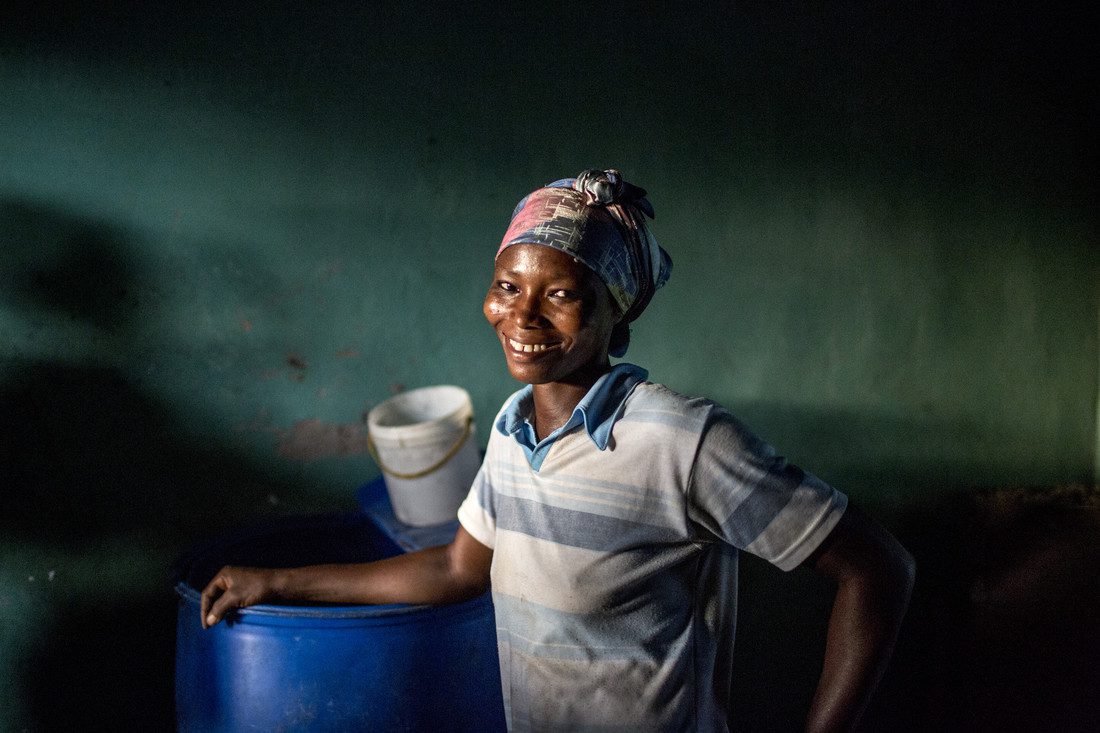
This gender inequality keeps many women poor in rural Ghana, and leaves their dependent children hungry.
Vivianne knows this too well. She says, “I am voiceless as a woman. I depend on my husband. I have no power to make decisions.”
Vivianne hopes for a fairer future for her five daughters — and Oxfam shares her vision. That’s why we are working with Ghana’s poorest communities to create opportunities for women to take part in the farming that sustains the region.
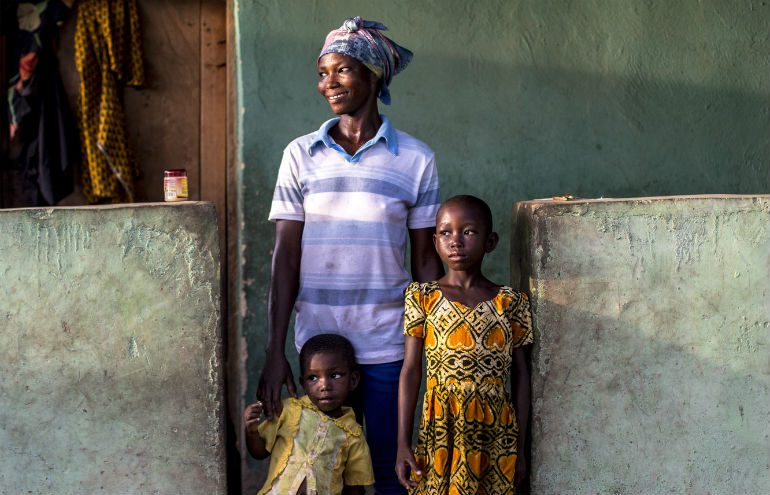
You can change the story for women and girls in Ghana
In rural Ghana, gender equality is keeping women in poverty. Donate today to create pathways for women to earn a living and lift themselves — and future generations — out of poverty.
Photos: Adam Patterson/Oxfam
